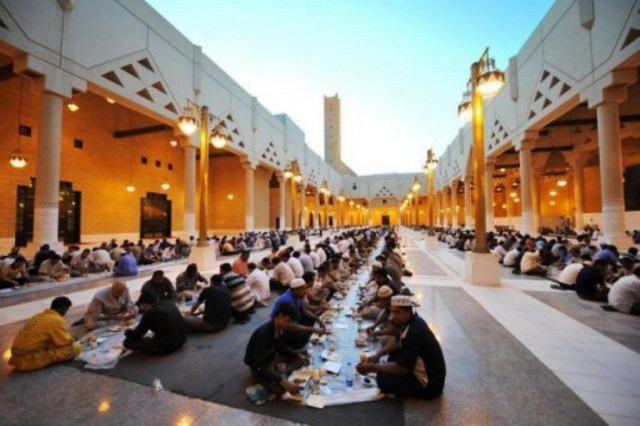New Saudi labour laws may restrict remittances to Pakistan
Thousands of illegal Pakistani workers face deportation after July 3.

More than 50,000 illegal Pakistani workers in Saudi Arabia would face deportation after July 3, who are not only bread-winner for their families, but also play a key role in the economy in the form of remittances.
Many of them are hoping that strong links between the PML-N government of Pakistan and the Saudi kingdom can save them. According to new labour laws announced by Saudi Arabia, overseas workers are restricted to work for their sponsors only in the field registered in their residence papers. Riyadh took this initiative to employ its growing labour force in different fields.

The unemployment rate in Saudi Arabia is around 12%, of which 40% are high-school graduates. In order to boost employment, the labour ministry wants to implement Nitaqat system, designed in 2011. According to Nitaqat, every company has to employ 6-30% native people depending on the size and nature of work the company does.
Every country has the right to accommodate its labour force first but overseas workers in Saudi Arabia are more skilled than the local populace.
With stricter laws, Saudi Arabia is trying to reduce the labour black market among an estimated nine million foreigners working in the country. The new policy allows workers to correct their record within the grace period of three months which will end in the first week of July. More than 1.5 million of them have changed their residence status since April ahead of a planned crackdown on illegal expatriates, said the labour ministry.
According to passport authorities, more than 180,000 expatriates have left the kingdom since the announcement of new labour regulations. After the July 3 deadline, illegal workers staying in the kingdom will face up to two years of imprisonment and fine of up to 100,000 riyals (Rs2.7 million).
The grace period would be helpful for those who have expired visa and illegal status to correct their record. Most of these are South Asians, who number around four million. As foreign workers queue up outside of government offices and consulates of their respective countries in sizzling heat to legalise their status, many of them ask the authorities to extend the amnesty deadline.
If previous instances are any indication, there is a strong relationship between the PML-N leadership and the Saudi kingdom, sparking hopes that the new government of Pakistan can play a vital role in solving the issue. The Foreign Office spokesman has said that the embassy in Riyadh is helping Pakistanis to legalise their status. Despite this, thousands of workers seem to be trying to leave the country because there are many hurdles in the process.
However, the government has so far not sent a delegation to handle the situation. On the other hand, India did send a senior delegation to Riyadh to avoid deportation of about 75,000 Indians.
Implications for remittances
Remittances from foreign workers are important to the economies of countries such as the Philippines, Sri Lanka, Bangladesh, India and Pakistan. Saudi Arabia is the largest source of remittances for Pakistan, though most of the Pakistani workers there are associated with low-paid jobs.
Remittances sent home by overseas Pakistanis touched $12.8 billion in 11 months (July-May 2012-13) of the current fiscal year with the hope that the figure will cross $15 billion by year-end. However, the situation in Saudi Arabia may serve as a stumbling block.
In the 11-month period, remittances from Saudi Arabia stood at $3.8 billion, accounting for 29% of the total. Monthly data shows that in March remittances from the kingdom stood at $352 million, which increased to $392 million in April but due to the new labour policy they fell to $380 million in May.
This drop of $12 million caused the decline in overall remittances in May, when they fell $23 million as compared to April.
According to the new labour policy, the Saudi government will create a database of worker salaries which will affect remittances. Saudi Arabian Monetary Agency will monitor the amount which an expatriate wants to send home and will compare it with his salary. If he sends more than his salary, he will be investigated.
It is projected that remittances from Pakistani workers in Saudi Arabia have plummeted about $30-50 million in June.
The writer is a researcher at the Economic Growth Unit of Sustainable Development Policy Institute
Published in The Express Tribune, July 1st, 2013.
Like Business on Facebook, follow @TribuneBiz on Twitter to stay informed and join in the conversation.



















COMMENTS
Comments are moderated and generally will be posted if they are on-topic and not abusive.
For more information, please see our Comments FAQ